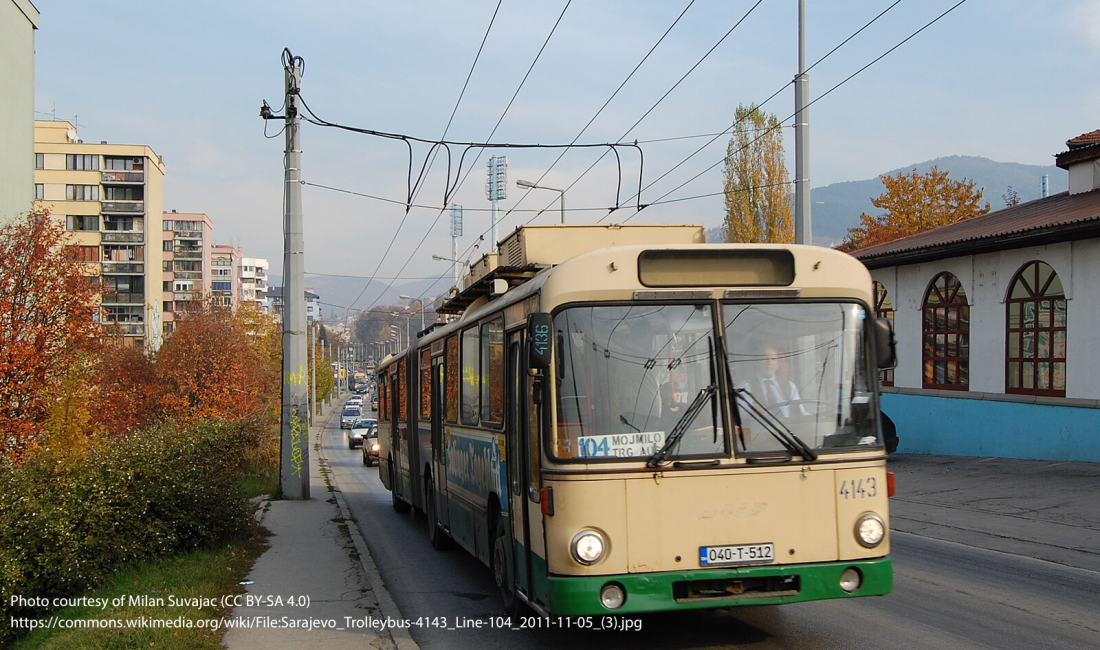In war, Barcelona made besieged Sarajevo its 11th district. A model aid partnership endures
The Democracy Column was written for Democracy Local and Zócalo Public Square.
TRANSLATIONS: Čitaj na bosanskom. Leer en español. Llegeix en català. Pročitajte na srpsko-hrvatskom اقرأ باللغة العربية
In 1992, Barcelona, Spain, announced the creation of a new, 11th district of the city.
This District 11 wasn’t carved out of Barcelona’s 10 existing districts. In fact, it wasn’t within or anywhere near city limits. It was 1,000 miles away. District 11 was the Bosnian capital city of Sarajevo, then under siege by Serb forces, who shelled the city for nearly four years, killing thousands of civilians.
More than three decades later, the wartime Barcelona-Sarajevo partnership endures as a model of the mutual aid and close connections cities will need to forge if they are to survive a 21st century of climate change, pandemic and nation-state violence.
Barcelona and Sarajevo together demonstrated that the best way for cities to help each other in times of conflict is to eschew the bitter political arguments of the moment—and instead focus on what cities do best: emergency response, aid to neighborhoods, planning and building.
Today, cities around the world are debating about how and whether, to respond to global conflicts, especially the Israel-Hamas war in Gaza. Some localities have chosen to stay out of faraway wars, on the theory that it is not cities’ job to conduct foreign policy. Other localities have jumped in, declaring their support for a cease-fire, often on terms preferred by pro-Palestinian groups.
Both approaches have proved counterproductive, fueling conflict instead of solidarity.
Cities that tried to duck the debate over declarations have faced disruptive protests and boycotts for perceived callousness. In my own small Southern California town of 26,000, a so-called “progressive” group, angry that our council decided not to entertain a cease-fire motion, launched social media campaigns accusing council members of supporting genocide.
Meanwhile, those cities that consider cease-fire declarations have become bitterly divided, especially since declaration debates are often accompanied by anti-Semitism and harassment. And even when localities manage to adopt cease-fire declarations, they find that the statements have little real-world impact on the faraway people and places suffering from war.
That’s why the story of Barcelona’s 11th District deserves more attention now. Rather than just debating or issuing a declaration, Barcelona in 1992 activated its people, its governments, and its resources to assist Sarajevo as if it were a Barcelona neighborhood, with Barcelona’s own people suffering under attack. Through the years of the war, Barcelona’s District 11 intervention provided humanitarian aid, including money, food and medical supplies, to Sarajevo.
Why did District 11 come about? Barcelonans felt a close connection to Sarajevo in 1992, for several reasons. For one, Barcelona was preparing to host the Summer Olympics that year, and some local officials maintained working relationships with counterparts in Sarajevo, which had hosted the 1984 Winter Olympics. For another, residents of Barcelona, a diverse and freewheeling city, felt a cultural affinity for Sarajevo, a melting pot with no majority ethnic group and a tradition of tolerance. And Sarajevo, like Barcelona, was part of a province that had sought to achieve greater autonomy and independence from its central government.
Then, on May 17, 1992, the young photojournalist Jordi Pujol Puente—who came from Catalonia, the autonomous region of which Barcelona is capital—was killed in Sarajevo while covering the fighting.
The tragedy inspired a public outpouring in Barcelona—including the announcement that Sarajevo was now District 11. In 1994, Barcelona reinforced its support for Sarajevo with a written agreement pledging to reconstruct the war-damaged city and establishea Local Democracy Agency in the Bosnian capital.
After the war and siege ended in early 1996, Barcelona and its provincial government expanded its support, by coordinating the rehabilitation of the Mojmilo neighborhood and rebuilt Olympic installations and a school.
In 1998, Barcelona and Sarajevo extended their agreement to include support for culture and sports, expand programs for youth and promote business cooperation between the two cities. In 2000, Barcelona and Sarajevo signed a “twinning protocol” that made them, effectively, sister cities.
The Barcelona-Sarajevo partnership has ebbed at times, but never ended. In 2022, city leaders reinvigorated it, with 30th anniversary events and new bilateral agreements to work on university collaborations, sustainable development, gender policies, social policies, cultural policies, the green economy, youth programs and peace initiatives.
I learned the story of District 11 during a recent visit to Barcelona to attend the first-ever local democracy festival, organized by ALDA, which was founded in the Balkans during the 1990s. ALDA has grown into the leading creator of collaborations between local governments and civil societies in Europe, Central Asia, and North Africa. It is expanding its work further into Africa, and into South America. A Barcelona official attending the festival told me that the city is working to assist Ukrainian municipalities damaged or occupied by Russia and has been increasing its spending on humanitarian aid for Gaza.
Back in Los Angeles, where I work, the city council is engaged in a divisive debate about a cease fire resolution in Gaza. I find myself wishing that L.A., and other cities, would stop arguing about Israel and Hamas, and instead provide more direct support to municipalities suffering from war.
Los Angeles and its leaders might even follow Barcelona’s example. Adopt a couple cities (say, Rafah in Gaza and Kharkiv in Ukraine) as L.A. neighborhoods, and rededicate some of the money budgeted for L.A.’s 2028 Olympics for current aid and future reconstruction.




